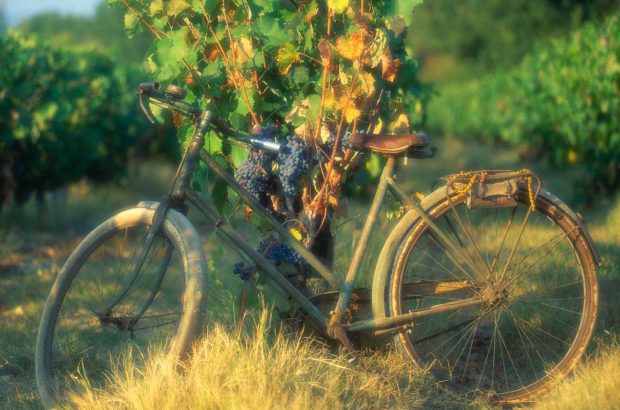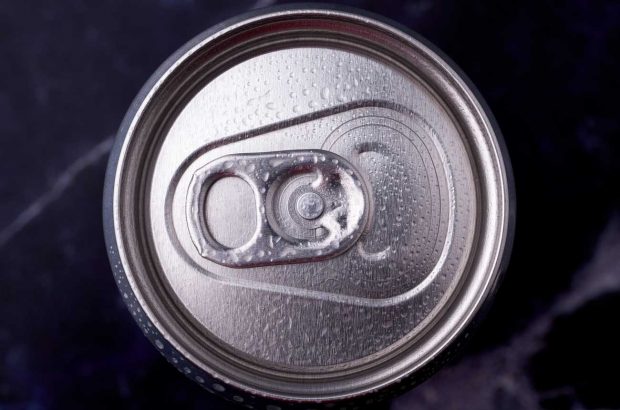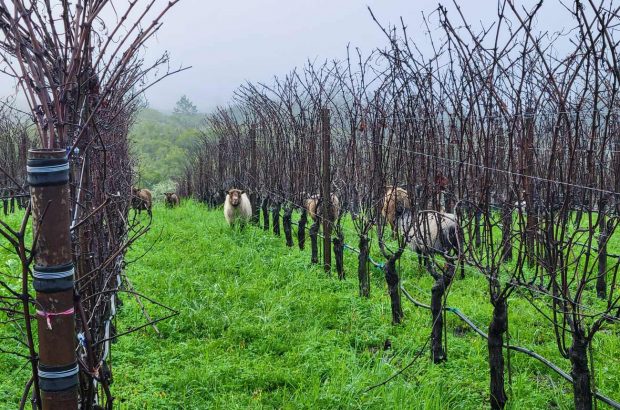The Decanter Interview: From Canada through California, Texas and Slovakia, winemaker Mark Shannon has made his home in Puglia, southern Italy. BRIAN ST PIERRE meets the man behind Italy’s world-famous award-winning brands, A Mano and Promessa
Puglia is the heel of Italy’s boot. Yet this is the region that is traditionally trodden under foot. To the prosperous northerners of Italy, Apulia is a shrug, a minor interruption. Yet, to the exasperation of the southerners, the rest of Italy eats their abundant vegetables and fruit, nibbles their smooth mozzarella, liberally pours their excellent olive oil, mops its up with their bread, and washes it all down with wines that were traditionally ‘corrected’ by blending in the liquid sunshine of the south, all the while looking the other way and murmuring of other things. Still, one man’s anonymous backwater is another’s peaceful haven, as it is for winemaker Mark Shannon. For him, Puglia is where opportunity flourishes as abundantly as the grapes that brought him here from California, to a way of life that made it easy to put down his own roots in its rock-strewn, oxblood-coloured soil.
Two stories illustrate its pull, he says. ‘I was driving around and got lost one day, so I stopped to ask directions, in my halting, self-taught Italian. The guy I was asking jumped into the car and told me to drive – he scared the daylights out of me, until I realised he was showing me how to get where I needed to go. That’s the way people are here. ‘Later, after I’d contracted with various grape growers, they would call and say, “I’ve got to see you,” but wouldn’t say what about. So I’d drop everything and race over there, and we’d have a cup of coffee or two, and chat about the weather, and that was it. When they said, “I’ve got to see you,” they meant, “I’ve got to see you.” It’s a tactile business here, based on respect, courtesy and trust. A generous land, and generous people.’
The award-winning wines he makes, under brand names A Mano (‘by hand’) and Promessa (‘promise’) are from native grape varieties – Negroamaro and Primitivo. My spell-check keeps trying to render the latter as ‘primitive’ and, to be fair, this was its image for a long time. The name is actually derived from the word primaticcio, or early, Shannon explains: ‘Around here, they say it’s the first child to wake up, as it ripens early and quickly.’ (The length of the harvest can be 7–10 days.) It’s also the grape that became Zinfandel in California.
Home from home
We are standing in the middle of a small vineyard, surrounded by waist-high clumps of old vines, grown in a method known as alberello, or ‘head-trained’, as they say in California. ‘Remind you of anything?’ Shannon chuckles. ‘The first time I saw these vines, I thought, this could be Lodi, this could be Dry Creek Valley in Sonoma in the old days. I’ve come a long way, but full circle!’
Born in Canada and raised in Los Angeles, Shannon aimed at being a doctor all through adolescence. When he was accepted into medical school, he suddenly realised it wasn’t for him. All those science courses hadn’t gone to waste, though; he had become a home winemaker, and enjoyed it enough to go to UCD (University of California, Davis). He was working as a fisherman on the Sacramento River to pay his way through university when he was offered a job at Bogle Winery, a pioneer of grape-growing in the river’s delta region.
https://www.decanter.com/wine-news/los-angeles-times-shaw-dies-96793/
After a decade at Bogle, Shannon became a consultant and supervised the start-up of TV actor Fess Parker’s winery in Santa Barbara. There followed a winery in Texas, and one in Slovakia at the behest of the US State Department, helping privatise the country’s wine industry after the collapse of communism (‘the grape growers and wineries had only ever talked to bureaucrats in ministries, never to each other’).
After all that, a winery project in Sicily sounded easy. When he joined a small team there, he met his partner, Elvezia Sbalchiero, a consultant on packaging and marketing. Originally from Friuli, she didn’t know much more about southern Italy than he, but as their employer was developing (and over-extending) projects in several places, they learned together. Puglia got ‘under their skins’, as they cheerfully admit, and when the deal collapsed they decided not to let a good business plan, and relationship, slip away. With credit cards and high hopes, they launched A Mano in 1997.
‘My lab equipment was dropped at the airport on arrival, and some of it broke,’ recalls Shannon. ‘It was right before the harvest, no time to replace it, so I had to make the wine the old-fashioned way, without a lot of technical analysis, mostly by sensory evaluation. It was liberating. I’m basically non-interventionist anyway, and Primitivo and Negroamaro both announce what they want to become, so I let them talk. After all, terroir is the taste of fruit from a specific place, and there is a specificity here. So I just try not to get in the way, not to compromise it.’
Back then, there were only a few wineries, and very little bottled wine sold. Now the pace of change is rapid, he says, with quality expanding widely and the previous brawny rusticity of the bulk-wine business fading. Regional prejudice was so extreme six or seven years ago that he and Sbalchiero didn’t plan to sell the wines in Italy, concentrating instead on the US, UK and northern Europe. ‘We would go to Vinitaly and tell people that if they came to our stand and tasted the wine, we’d give them a bottle of our olive oil,’ she says.
Shannon and Sbalchiero live and work in a considerably renovated masseria – a farmhouse several hundred years old which had been abandoned for 10 years and was so rundown that the estate agent refused to accompany them to see it. The small winery, also considerably modernised from an earlier incarnation, is nearby. All the grapes are purchased, from numerous growers with small, low-yielding old vineyards. In the past, growers had little choice but to bring their grapes to the local coop and wait until the spring or even later to be paid. Shannon and Sbalchiero paid sooner and better. And reaped quality produce in return.
‘The piazza is a very small place,’ says Shannon. ‘Word got around. We showed respect by setting criteria and standards, and never telling them what to do. We only deal with Puglian varieties, just Primitivo and Negroamaro. We won’t look at Merlot or other international varieties. Right now I can inspect every grape that comes into the winery. We’ll keep growing till I can’t, then we’ll stop.’ Besides the two varietal wines, Shannon also makes a blend – Rosso Salento – and in very good years sets aside a few barrels for Prima Mano, his version of a reserve wine. The next extension, after more tinkering and tweaking, will be a rosé. ‘It will be wonderful,’ he says with the grin of a man who has drawn a hand full of aces. ‘It will be legitimate Puglian. It will not be an apologetic wine.’
https://www.decanter.com/wine/grape-varieties/negroamaro-red-52410/
We go to dinner in town, in Gioia del Colle, which is neither joyous nor hilly, but has a cheerful restaurant and enoteca – Il Santo Bevitore – where Shannon and Sbalchiero are greeted like long-lost relatives. The antipasti consist of 10 vegetarian dishes. It’s an astounding, richly flavoured array, a snapshot of Puglia’s abundance. This may be cucina povera (the food of the poor) but they’ve made the most of it. The lightly floral top notes of the 2001 Negroamaro, with its distinctive fruit and suppleness, dance cheek to cheek with most of the platters. Then we switch to the firmer, vibrant 2001 A Mano for the equally perfect match of fried black olives and charcoal-grilled lamb.
The dinner isn’t a bad analogy to what they’ve done here, putting their lives and wines together. ‘One day we’ll make a profit!’ adds Shannon. Sbalchiero, slightly more serious, asks: ‘Do you think we’re crazy to have come here, to have done this?’ The only thing crazy is the question.
Brian St Pierre is the author of Vino Bravo: The Italian Wine-Lover’s Cookbook, available in late 2004 from Chronicle Books, San Francisco.





